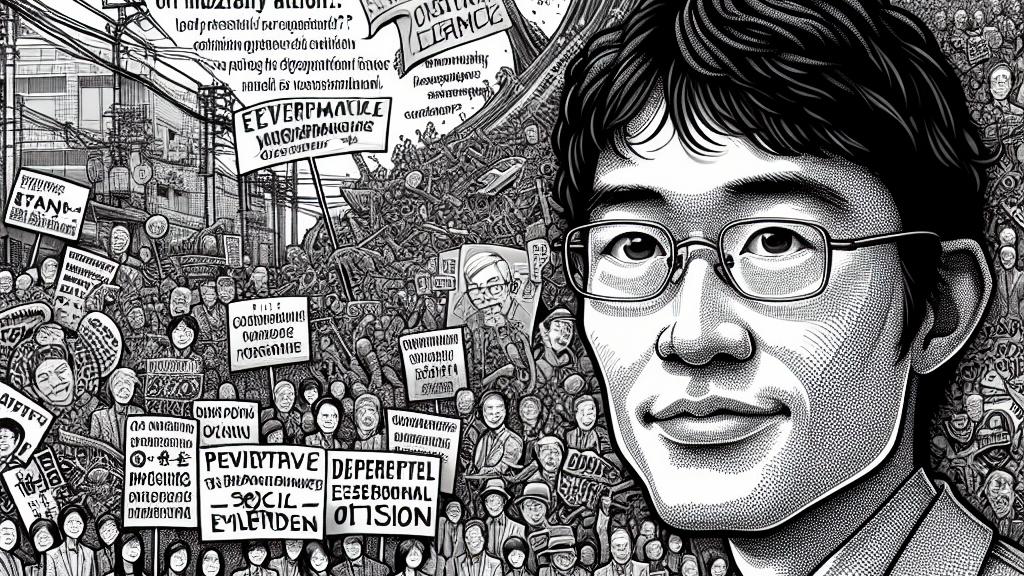The Future of Japan's Leadership: Shinjiro Koizumi and US Diplomacy
Overview
- Shinjiro Koizumi emerges as a transformative force in Japan's political scene, inspiring a new generation.
- His seasoned rivals may significantly change Japan's diplomatic relationships with the US and South Korea.
- As Japan faces pressing regional challenges, the upcoming leadership election promises to reshape its global standing.

Koizumi: A Catalyst for Change in Japanese Politics
In the vibrant capital of Tokyo, Shinjiro Koizumi has positioned himself as a beacon of hope and change in the race for prime minister. At only 43 years old, he represents youthful ambition and progressive ideals, contrasting sharply with the seasoned leaders of the past. His campaign is marked not only by promises of reform but also by a vision of inclusivity that resonates with many voters. For example, he has vocalized his commitment to environmental issues and social justice, presenting a new narrative that seeks to redefine the Liberal Democratic Party's image. As voters navigate between the weight of tradition and the allure of innovation, Koizumi's potential election could signal a watershed moment in Japan's political history, leading to a more dynamic and responsive government.
Rival Candidates: Defining Distinct Paths for Japan’s Future
Koizumi's path is not without significant opposition. Veteran politicians Shigeru Ishiba and Sanae Takaichi offer contrasting perspectives on Japan's role in the world. Ishiba, advocating for an independent foreign policy, has suggested a reevaluation of U.S. military bases in Japan, aiming to bolster national sovereignty while ensuring that Japan’s defense strategies align with its own needs. This viewpoint could resonate with voters who prioritize a more assertive national stance. Meanwhile, Takaichi, known for her hardline views, may inadvertently reignite historical tensions with South Korea, complicating regional diplomacy. These seasoned candidates present a challenge to Koizumi, whose progressive platform needs to demonstrate its viability against established political norms and the complex realities of international relations.
The Strategic Importance of U.S.-Japan Relations
The relationship between the United States and Japan is paramount, intertwined with the fabric of regional stability and security. As both countries discuss enhanced military cooperation, including potential upgrades to defense systems, the stakes are particularly high. For instance, the recent joint military exercises exemplify the commitment to a robust alliance, one that has been a cornerstone of peace in the Asia-Pacific for decades. If elected, Koizumi is likely to maintain this cooperative spirit, championing continued collaboration with Washington. Conversely, Ishiba's potential election may usher in a more contentious dialogue regarding military presence, reflecting a shift towards a nationalistic agenda. As Japan faces ongoing geopolitical tensions, particularly from China, the decisions made in the upcoming election will profoundly affect not only Japan's future but also its standing in an increasingly complex global landscape.

Loading...